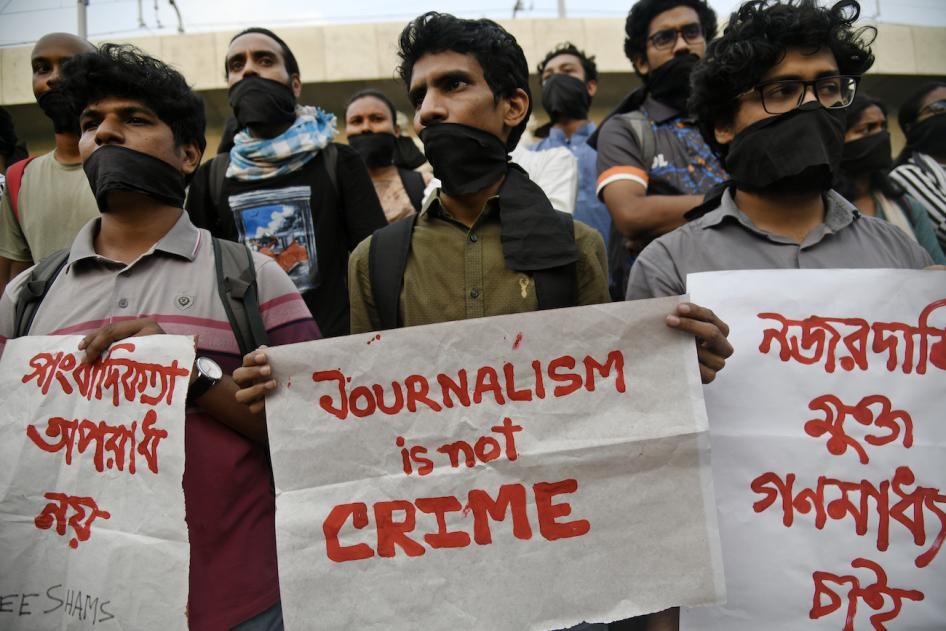
Khwaja Masum Bellah Kausarey: From 2013 to 2021, allegations of enforced disappearances, extrajudicial killings, and extrajudicial executions of political activists, human rights defenders, and journalists in Bangladesh rose at an alarming rate. International watchdogs Human Rights Watch (HRW) and Amnesty International have repeatedly reported that security forces—especially the Rapid Action Battalion (RAB) and the Criminal Investigation Department (DB Police)—have killed numerous individuals in so-called “crossfire” or “shootout” incidents.
A special United Nations report noted that, between 2009 and 2021, more than 500 enforced disappearance cases were documented in Bangladesh. Most of the victims were linked to political parties, social movements, or civil society. Many never resurfaced after being abducted; some were later recovered dead. In countless instances, families were not even informed of the reasons or charges behind their loved ones’ detention.
These human rights violations spike particularly in July and August each year. Historically and strategically, these months are politically tense in Bangladesh’s calendar. The anniversaries of August 15 (the assassination of Bangabandhu Sheikh Mujibur Rahman) and August 21 (the grenade attack on an Awami League rally) prompt rival political parties to stage counter-programs, leading security forces to intensify operations and exact political vengeance. Often, preparations for forthcoming national elections further heighten tensions, prompting the government and its security arms to crack down on opposition voices.
When mainstream and social media amplify criticism of the government, the prime minister and law-enforcement agencies frequently launch direct operations to suppress dissent—actions fundamentally incompatible with democratic freedoms of expression and human dignity. Although Articles 31, 32, and 33 of the Constitution of Bangladesh guarantee every citizen’s right to life, personal liberty, and due process, the practical enforcement of these rights is frequently called into question.
At the end of 2021, the United States government imposed sanctions on RAB and several of its senior officers—marking the first major international response specifically targeting human rights abuses in Bangladesh. While the United Nations and the European Union had previously voiced concern, they had not taken such concrete measures. These sanctions sent shockwaves through the international community, raising serious doubts about Bangladesh’s human rights record.
A cycle of violence, vengeance, and impunity permeates Bangladesh’s political culture, and it becomes especially visible each July–August. The combination of state repression and a political culture that seeks to eliminate opponents has cast a dark shadow over the country’s human rights situation. History teaches that democracy depends not only on elections but also on freedom of expression, justice, and accountability.
In 2024, the student-led protests demanding quota reform in government jobs marked a watershed moment. In response, security forces and ruling-party supporters violently suppressed what began as a peaceful movement. According to the UN Office of the High Commissioner for Human Rights (OHCHR), between July 1 and August 5, 2024, at least 1,400 people were killed—12–13% of them children—and some 11,700 were arrested or detained without specific charges. Thousands more were injured.
Security forces opened fire on protesters, secretly disposed of bodies, and even burned them. Medical records of the injured were confiscated to destroy evidence. Lawyers, journalists, and victims’ families were intimidated and threatened. Many observers argue that these actions represent the ultimate betrayal of democracy, human rights, and justice.
Between July 26 and 28, six student activists and human rights defenders were detained and coerced into publicly withdrawing from the movement. A video coerced from them was broadcast on government-aligned media, drawing widespread international condemnation for its blatant violation of free expression and civil liberties.
Under intense pressure, Prime Minister Sheikh Hasina left the country on August 5. With broad support from elements of the army, student leaders, and civil society, Nobel Peace Prize laureate Professor Dr. Muhammad Yunus was appointed head of an interim government. He immediately pledged to investigate extrajudicial killings and to fully restore democratic institutions.
Simultaneously, a UN fact-finding mission launched an independent investigation into the human rights violations occurring from July 1 to August 15. By interviewing victims, witnesses, and relevant parties, the team is preparing a detailed report that could serve as critical evidence in international forums regarding Bangladesh’s responsibilities and role.
This ongoing pattern of human rights abuses not only destabilizes Bangladesh’s internal political landscape but also undermines the country’s credibility on the global stage. History shows that no society can achieve lasting peace and development through repression, fear, and vengeance. To build a humane, just, and democratic Bangladesh, it is imperative to establish effective accountability, uphold the rule of law, and foster a political culture of tolerance and respect for human rights.
Writer: Khwaja Masum Bellah Kausarey is the Senior Vice-President of the National Human Rights Organization “Lighthouse”, as well as a Senior Journalist and Social Activist in Bangladesh.





